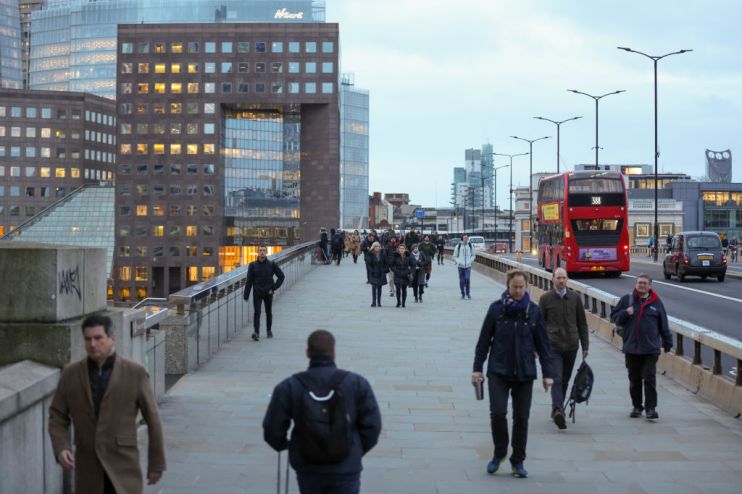Cost of living grip tightens as wages trail rampant inflation

The cost of living crunch is tightening its grip on Britons’ living standards in a further sign that the UK economy is hurtling towards a period of slow growth.
Fresh figures published by the Office for National Statistics (ONS) today reveal pay is lagging far behind inflation, meaning households are unable to buy the same quantity or quality of goods and services.
Real wages excluding bonuses, which most of the population receives, shrank one per cent, the ONS said.
Total real pay jumped 0.4 per cent over the three months to February.
Accelerating inflation is cancelling out workers’ gains from pay rises. The rate of price rises is already running at a 30-year high of 6.2 per cent, but is expected to surge even higher in the coming months.
New inflation calculations released tomorrow are expected to come in at 6.7 per cent, the hottest rate since March 1992.
Brits are projected to cut back on spending in response to pressure on their finances, prompting economists at the Office for Budget Responsibility, the UK’s official forecaster, to slash growth expectations for the year to 3.8 per cent from six per cent.
Consumer spending accounts for around 60 per cent of UK economic output, meaning a pull back in purchases will choke growth.
Sluggish pay growth in the face of soaring prices “isn’t good news for individual workers’ living standards,” Martin Beck, chief economic adviser to the EY Item Club, said.
The UK’s jobless rate edged down to 3.8 per cent, but this was mostly driven by around 76,000 workers dropping out of the labour market.
Economically inactive people are not baked into the ONS’ unemployment calculations.
Experts also warned hiring could fall back in the coming months due to the government’s 1.25 percentage national insurance hike raising the cost of employing and retaining staff.
Worker demand “likely will grow at a slower rate soon, in response to this month’s increase in employers’ national insurance contributions and the squeeze on the amount of money that households have left to spend on domestically-produced goods and services from higher energy prices,” Gabriella Dickens, senior UK economist at Pantheon Macroeconomics, said.
Analysis of Insolvency Service figures by law firm GQ Littler published on Monday revealed planned redundancies have more than doubled in just a month, largely driven by firms slashing costs ahead of having to pay a higher tax bill.
Chancellor Rishi Sunak pointed to rising employee payroll numbers indicating “the continued strength of our jobs market”.